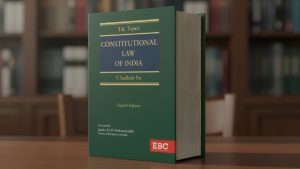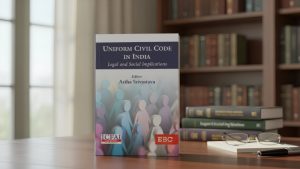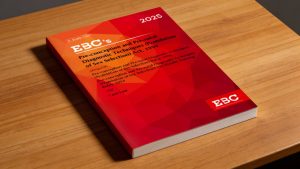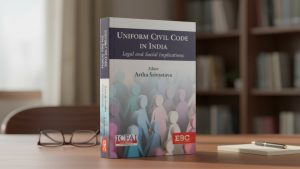
Legal words often sound serious, complex, and intimidating. But here’s the truth, many of them don’t mean what we think they mean. Over time, pop culture, news headlines, and casual conversations have twisted their meanings. Let’s clear the air and decode ten legal terms that are often misused, misunderstood, or just plain mixed up, one term at a time.
FIR (First Information Report)
Wrong Use:
Many believe that an FIR can be filed for any complaint, no matter how minor.
Right Use:
An FIR is registered only for cognizable offences, which are serious crimes like theft, assault, or murder. For minor issues or civil disputes, such as a property disagreement, a simple complaint is sufficient.
The Real Story:
The concept of the FIR comes from Section 154 of the Code of Criminal Procedure. It is the first formal step in a criminal investigation and signals the beginning of the process of justice, not just another form to fill out.
Bail
Wrong Use:
Many people assume that being granted bail means the person has been declared innocent.
Right Use:
Bail simply allows temporary release while the trial is pending. It does not erase the charges. The principle behind bail is that everyone is presumed innocent until proven guilty.
The Real Story:
The right to seek bail is rooted in Article 21 of the Constitution, which guarantees the right to personal liberty. Bail is not freedom from guilt but a safeguard against unnecessary detention before the verdict.
Defamation
Wrong Use:
People often call any insult or criticism “defamation.”
Right Use:
Defamation occurs only when a false statement damages someone’s reputation and is shared with others. Honest opinions or fair criticism do not count as defamation.
The Real Story:
Defined under Sections 499 and 500 of the Indian Penal Code, defamation laws aim to protect a person’s reputation, which the Supreme Court has linked to the right to life and dignity under Article 21.
PIL (Public Interest Litigation)
Wrong Use:
It is often treated as a tool that allows anyone to file a case on any social issue.
Right Use:
A Public Interest Litigation is meant to protect the rights of those who cannot approach the court themselves. It should focus on public welfare, not personal or publicity-driven interests.
The Real Story:
Emerging in the 1980s, the PIL movement transformed the Indian judiciary. It opened the doors of justice to every citizen, shifting the courts from being exclusive to being accessible and inclusive.
Custody
Wrong Use:
People often equate custody with punishment or imprisonment.
Right Use:
Custody simply means being under lawful control, not necessarily being punished. For instance, police custody during questioning is not the same as serving a jail sentence.
The Real Story:
The Criminal Procedure Code differentiates between police custody and judicial custody. This distinction helps balance the needs of investigation with the rights of an individual.
Summons
Wrong Use:
Many assume that receiving a summons means they are in legal trouble or accused of a crime.
Right Use:
A summons is simply a formal notice requesting someone to appear before a court. It may be sent to witnesses, defendants, or even experts, and it does not imply guilt.
The Real Story:
Under Sections 61 to 69 of the Criminal Procedure Code, a summons is the court’s polite and official way of asking someone to participate in a legal process. It is about ensuring presence, not imposing punishment.
Affidavit
Wrong Use:
An affidavit is often viewed as just another document or a routine formality.
Right Use:
An affidavit is a sworn statement made under oath before an authorized officer. It carries the same seriousness as testimony in court, and lying in an affidavit amounts to perjury.
The Real Story:
The term “affidavit” comes from the Latin word affidare, meaning “to pledge one’s faith.” When you sign one, you are making a personal pledge of truth before the law.
Alibi
Wrong Use:
In casual talk, people use “alibi” to mean an excuse or justification.
Right Use:
Legally, an alibi is a defence that proves the accused was somewhere else when the offence occurred, making it impossible for them to have committed the act.
The Real Story:
The word alibi literally means “elsewhere” in Latin. In law, it is one of the strongest forms of defence when supported by credible evidence and witness accounts.
Consent
Wrong Use:
Some think that once consent is given, it cannot be withdrawn, or that silence equals consent.
Right Use:
Consent must always be free, informed, specific, and reversible. Any consent obtained through fear, fraud, or pressure is invalid.
The Real Story:
Consent is a core legal and ethical principle recognized across laws such as Section 90 of the Indian Penal Code, the POSH Act, and the Data Protection Act, 2023. It forms the foundation of autonomy and respect in both law and daily life.
Evidence
Wrong Use:
It is often assumed that any photograph, message, or recording automatically counts as evidence.
Right Use:
Evidence must be both relevant and authentic. Unverified or manipulated material cannot be accepted in court as valid proof.
The Real Story:
The Indian Evidence Act of 1872 governs how evidence is admitted and evaluated in court. In an era of deepfakes and digital manipulation, its principles of authenticity and reliability are more vital than ever.
















